Filmmaker 5 with Pascale Appora-Gnekindy, Ningyi Sun and Mathieu Faure: Eat Bitter
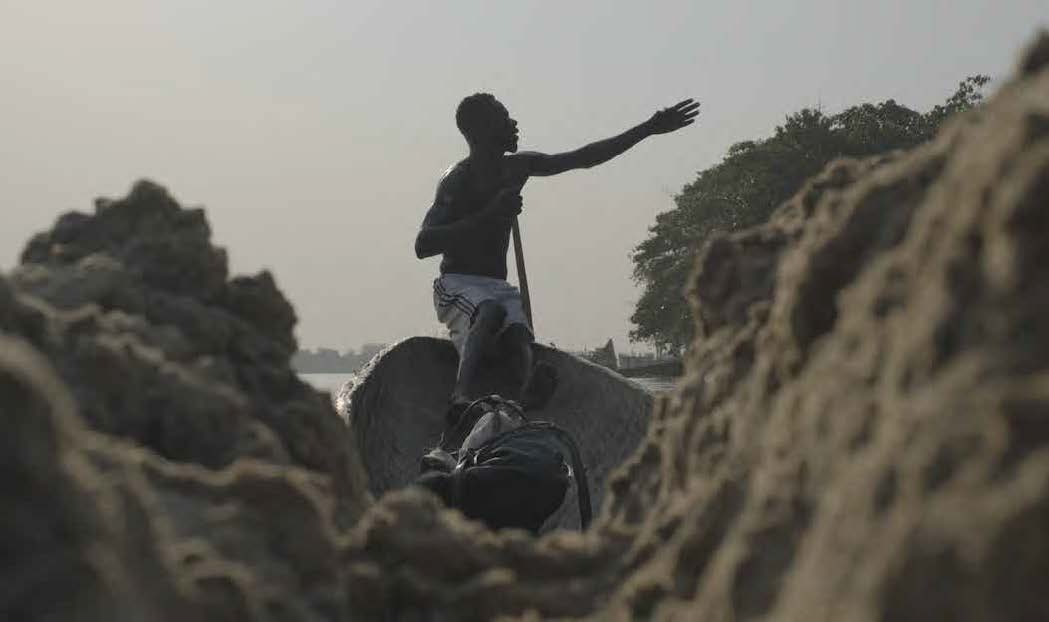
In the Central African Republic, a Chinese construction manager and a central African laborer are
assigned to construct a sparkling new bank. A looming civil war, poverty, the covid-19 pandemic,
attempted suicide all come into play as the two men face unexpected twists that threaten their plans for a better life.
Eat Bitter, the documentary film following two men with nothing and everything in common, makes its Canadian premiere at the 2023 Hot Docs Festival. Classic Couple Academy asked co-directors, co-writers and co-producers Pascale Appora-Gnekindy and Ningyi Sun and executive producer, producer, co-writer and co-editor Mathieu Faure about the many hates they wore in the making of Eat Bitter. Their combined responses to our questions follow.
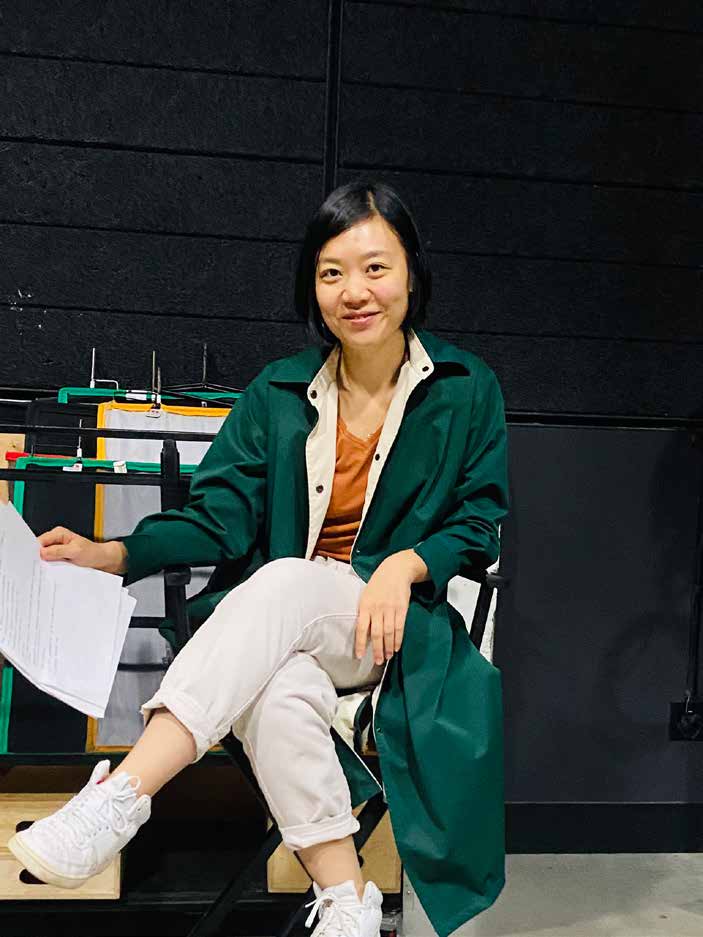
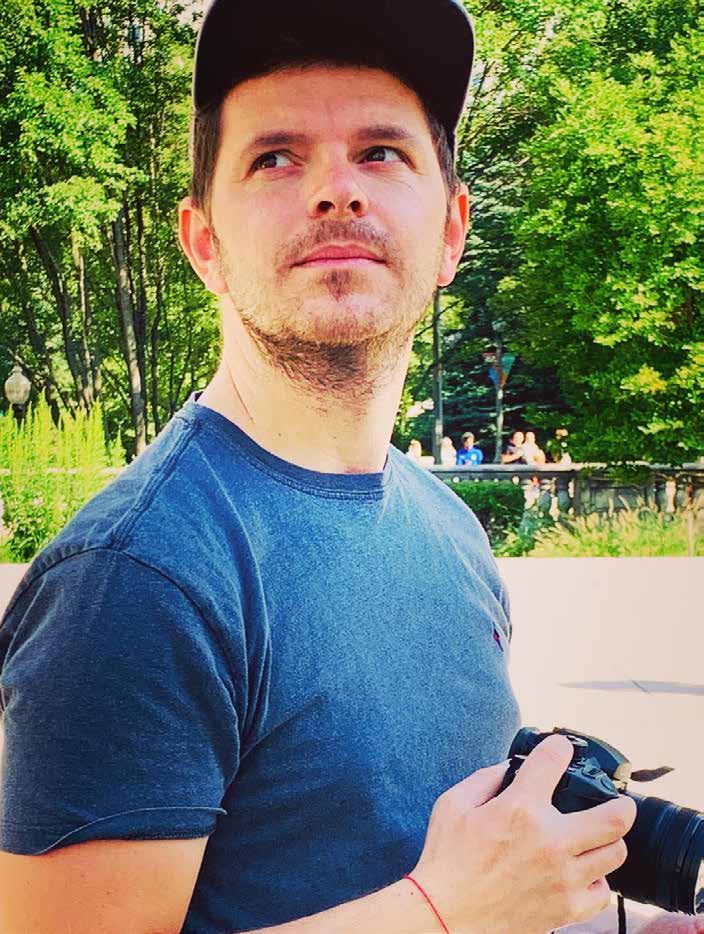
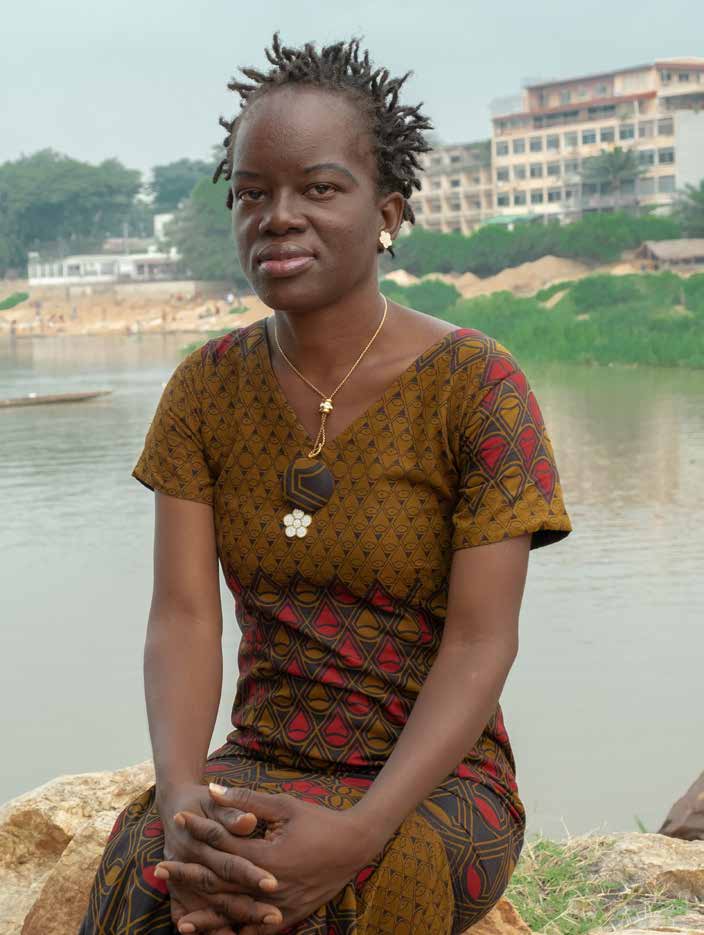
Filmmaker 5.1: What were the biggest challenges you faced in creating the film Eat Bitter? Anything particularly challenging in bridging two cultures?
Life in Bangui can be full of distractions and unforeseen events; from cutoffs of water and electricity to epidemics of malaria and typhoid, from car and motorcycle accidents to resurgence of civil war we have faced so many challenges producing this film.
To film securely in this still unstable country, Pascale shuttled between authorities and different entities to obtain site and filming permissions. Nevertheless, such permits don’t guarantee safety while filming. During production, local attitudes toward foreign visitors became a serious consideration when shooting in public.
“To many in the CAR, I’m seen as white, and associated with the ugly, enduring history of European colonial exploitation that’s made such difficulties in this country and neighboring ones. At times, my presence could be a source of unwanted attention, even controversy,” sighs Ningyi.
“Gradually, on construction sites run by the Chinese, I supervised most of the filming; but in the crowded neighborhoods and at the Ubangui River, it was Pascale directing, with me often collaborating out of sight and at a distance,” adds Ningyi describing their discretion in public.
A couple of months in, the production of the film took a very dangerous turn. On Christmas Eve of 2020, Pascale was arrested for filming on the street and threatened with punishment by death. It was the lead-up to the presidential elections. Tensions inside the country erupted and rumors about rebels attacking the capital spread out in Bangui. The president put the city under curfew and government forces on alert.
“I was on the boulevard with my telephone, when I was detained by members of the presidential guard. They thought I must be a spy, and so I was taken to the Presidential Palace. They did not give me food or water, nor could I sleep. They seized my phone and roughly interrogated me, threatening my life, not allowing me to call anyone or communicate. It was terrifying, especially the threats of sexual assault.” Pascale remembers.
“I was calling from New York with Ningyi daily,” Mat recalls, “We lost touch with Pascale for 36 hours. We were just beside ourselves with worry. We only knew she had been detained, but where and for what?”
“I was talking to our local cameraperson Orphee all the time. Fortunately, he located her and ultimately, secured her release. Pascale was shaken, but unhurt, mostly. I’m still in awe of her courage and resilience after those hours under arrest,” Ningyi shares.
“Ningyi and I were prepared to halt production: perhaps the risks were just too high for us to make this film at this time. We asked Pascale what we should do?” says Mat.
“I was frightened and terrified, but ultimately I told the team that I wanted to make this documentary. My ordeal isn’t going to stop the project,” affirms Pascale. “It was awful—I was frightened and terrified, but ultimately, this is my country and I want to make it better than it has been. Understanding what’s going on in our economy and culture as we finally interact with the wider world, that’s important. I told Ningyi and Mat, I want to make this movie. My ordeal isn’t going to stop the project,” proclaims Pascale.
Filmmaker 5.2: The Chinese proverb, “Eat bitter, taste sweet” is said by one of your main subjects and it is indeed part of the film’s title. How did this proverb influence how you structured the film?
Eat Bitter, or Chi Ku, in Chinese means you have to endure hardship before you achieve fortune and happiness in life. Currently, between 1.5 million and 2 million Chinese immigrants are working in the African continent, including our Chinese character, Jianmin Luan. They are separated from their families for extended periods of time, and some of them work and live in rough conditions, especially in countries like the Central African Republic, where the State is too weak to provide constant water, electricity, economic incentives, and political stability. In the film, we like to show the adventures, self-fulfillment, gains and losses that Luan, a normal Chinese construction worker, and his family face when they intend to benefit from globalization and capitalism.
Meanwhile, suffering before tasting sweetness in life is also the path chosen by our other major subject Thomas. He constantly struggles with money, physical pain, and his responsibilities of taking care of his two children. In his music, he expresses his opinions about his country embroiled in poverty and civil instability. But like Luan, he keeps fighting and working to create conditions and cultivating hopes for his family and his country to have a better future. Thomas represents local youths in the Central African Republic who, not having many job prospects in their country, remain hardworking and hopeful as their country rises from its colonial past.
Through the spirit of “eat bitter, taste sweet”, we weave two men’s paths into one story to show their progress in life fighting against all odds. However, like everyone of us, at the end of this ambitious journey, what awaits us might not be all happiness and joy. Therefore, the film also explores what we lose alongside achieving goals we set in life.
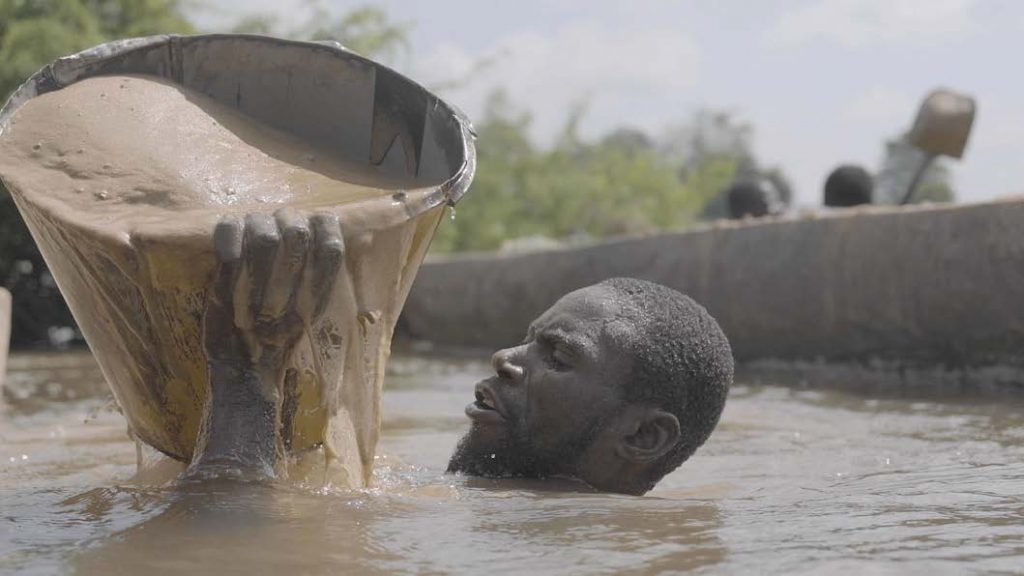
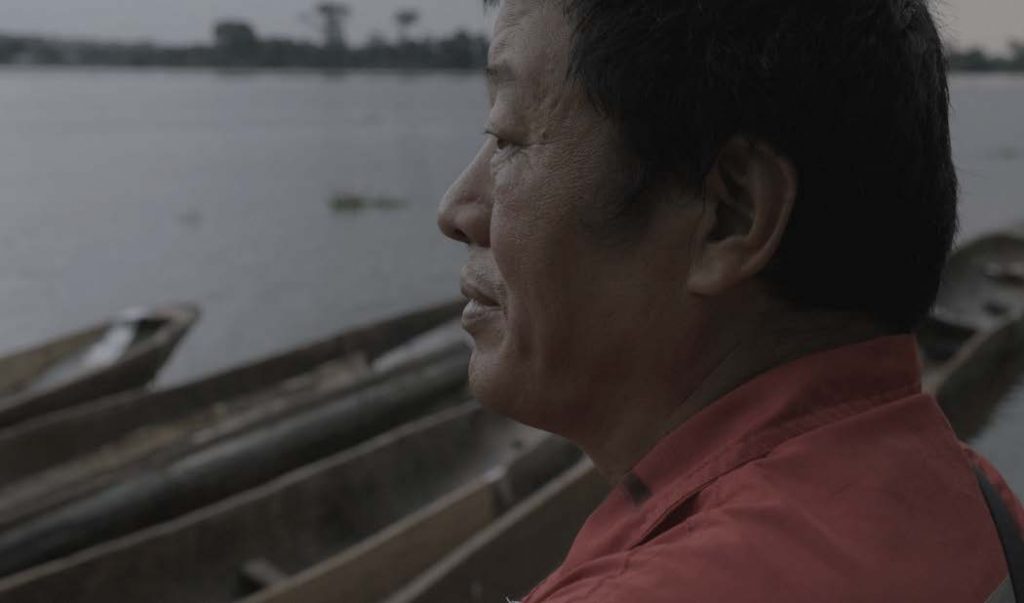
Filmmaker 5.3: The three of you all wore multiple hats in making Eat Bitter. How did you approach your collaboration and various roles to achieve a shared vision?
We are a very small team, a limited budget, and equipment that is typically used to take pictures and everyone eventually took on multiple hats. The sometimes astonishing amount of work imposed a challenge to our limited manpower. Mathieu Faure, our excellent producer and co-writer, eventually also worked as co-editor. Ningyi Sun, one of our two directors, did a five-day crash course on cinematography to become the second-camera so that she could film more intimate scenes of the Chinese community.
As two directors and a producer, we agreed early in the project that the film would focus on the human side of the two characters and their personal journeys. In the field, Pascale and Ningyi worked with our local director of cinematography Orphe Zaza Bamoy and sound engineer Aaron Koyassoukpengo, who also supported the producing side of the shoots. After each shoot, the two directors would have a call with Mathieu, who was based in New York, to debrief the production and discuss future shooting plans. As the most experienced filmmaker on the team, Mathieu guided the two directors to explore the similarities and differences of the two characters’ lives faced with a slew of challenges while living in Bangui, the capital of the Central African Republic.
During the post-production, the two directors and the producer worked with the editor to embark on a whirlwind eight-month-long post-production. Through the process, we implemented our initial vision as a team to weave two characters’ paths into one story, portraying their progress and milestones in life, in the backdrop of a looming civil war, a pandemic, and protracted weakness and poverty in the city they live in.
After two years and four months’ hard work, our “eat bitter” finally paid off. The film finally world premiered at CPH:DOX in March 2023 and screened at Atlanta Film Festival, Vision du Reel, and is being seen at Hot Docs and Doc Edge.
Filmmaker 5.4: You juxtapose the lives of two main subjects in the film—Luan, a Chinese construction supervisor, and Thomas, a local sand diver. Were the two men aware of this presentation when you were making the film? How did you decide as filmmakers on this construct?
Thomas and Luan did not know each other when we started to film. They would pass one another at the sand market but would not interact. Luan would talk to Thomas’ boss, Jeannet, about business but would not interact directly with the divers. From the beginning, we did not want to create something that was not real. We knew that Thomas and Luan would not become friends. It did not mean that their realities could not be intertwined because they share more similarities than one might think.
When we began to roll, we explained to them that we would follow them for several months. Thomas knew that we were filming Luan and vice-versa. They did not really ask questions about one another. What mattered to them was for us to show their reality.
At first, we wanted to film a short documentary, focusing on the sand supply channel. However, Thomas’ and Luan’s personal and professional lives were so rich that we decided to make a feature film.
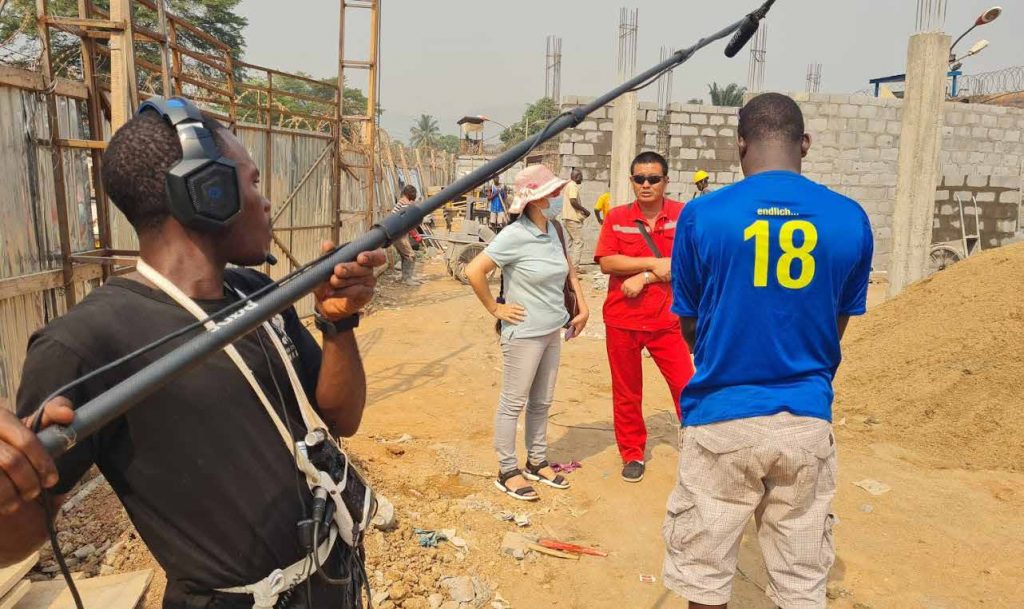
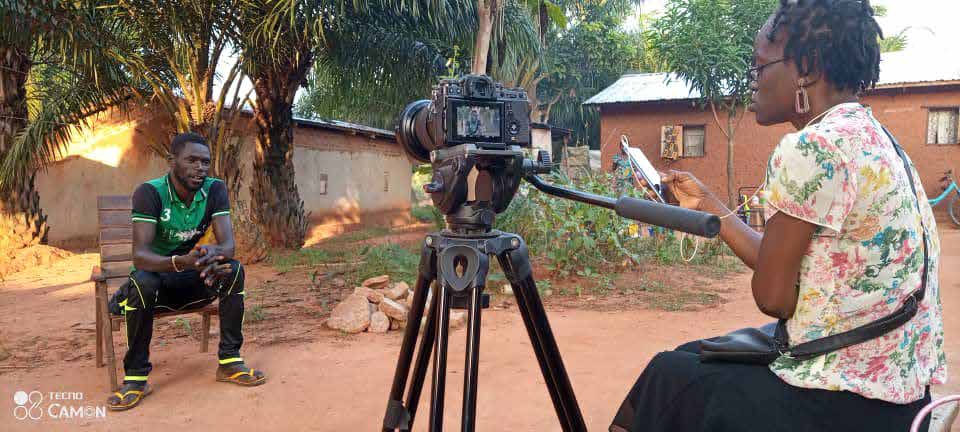
Filmmaker 5.5: Poverty, a better life, and providing for one’s family, are central themes in the film, which takes place in one of the poorest nations in the world—the Central African Republic. What were the imperatives you agreed had to be communicated in the film?
Indeed, the two characters in the film work hard to fight poverty so that they can have an independent and dignified life. We would like to emphasize the notion that despite being one of the poorest nations in the world, the Central African Republic simultaneously boasts opportunities that attract skilled workers from China and other countries. Like other immigrant workers, Luan has supposedly been able to provide a better material life for his family in China. But he also has paid a price chasing fortune abroad. We would like to question the gains and losses of a mobile life adopted by skilled workers and what this migration means to a country entangled in civil wars and poverty.
Meanwhile, despite coming from two different cultures, the two characters share amazingly similar drives in their life—to provide for their families, keep them whole, and cherish romantic love in their life. We’d like to communicate that regardless of our racial, cultural, social and economic backgrounds, ultimately, all the “bitter” we eat would make sense as long as we could share the eventual “sweetness” with the people we love in life.
CLASSIC COUPLE ACADEMY RECOMMENDS
See Eat Bitter at 2023 Hot Docs Festival.
Wednesday May 3, 2023
7:45PM Scotiabank Theatre 6
Saturday, May 6, 2023
11:30AM Scotiabank Theatre 5
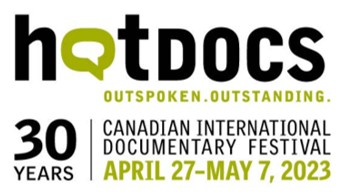
Watch the Eat Bitter trailer.
